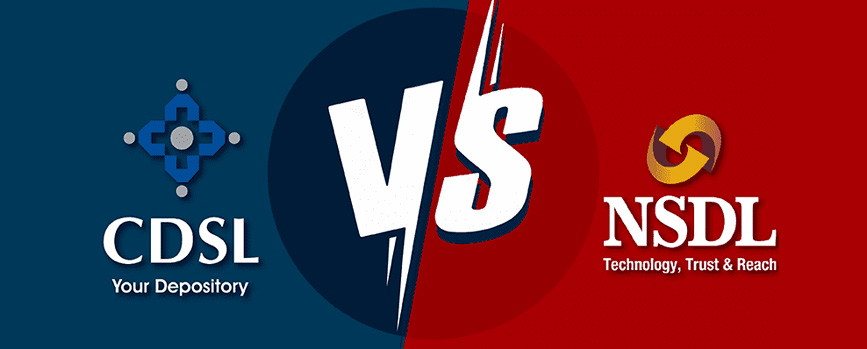As an investor, you need to understand what depositories are and what is their role in the stock market. They are, after all, the most fundamental players in the market’s functioning. Depositories are entities that hold your shares or securities in electronic or intangible form (dematerialised format). They guard and store any type of stock market security.
There are two major depositories in India: National Securities Depository Limited (NSDL) and Central Securities Depository Limited (CDSL). These two depositories facilitate your Demat transactions and make trading in the stock market easier. Opening a Demat account and a trading account is imperative for starting the investment journey. And these depositories are responsible for the opening and management of your accounts.
Understanding depositories
Both National Securities Depository Limited (NSDL) and Central Securities Depository Limited (CDSL) are depositories that maintain stock market participant’s financial records. They communicate with investors through Depository Participants (DPs). The DP acts as the intermediary’s representative between depositors and their clients. DPs are authorised by a depository under the relevant legislations of the SEBI Act.
You need to open a Demat account to use depositories’ financial services. Usually, depository participants are the brokerage and trading platforms like Zerodha, Upstox, Groww, etc. These companies provide the demat account opening services along with market activity reports and other value-added services.
National Securities Depository Limited (NSDL)
The National Securities Depository Limited is affiliated to the National Stock Exchange (NSE). NSDL is the oldest and largest depository of electronic securities in India. It was established in 1996 and is based in Mumbai, Maharashtra. It is the first depository in India to exchange and pay for securities electronically or in Demat form. NSDL has around 1.7 crore investor accounts and 30,500 points of service in 2000 cities.
Central Depository Securities Limited (CDSL)
Central Depository Securities Limited (CDSL) trades on the Mumbai Stock Exchange (BSE). CDSL is the second depository of securities in India after NSDL. It was set up in 1999 in Mumbai. It is the second largest securities and stock market accounting depository in India. CDSL operates over 19,000 DP service centres with investor accounts of approximately 1.6 crore people.
‘‘
NSDL and CDSL hold various bonds and electronic securities in different segments such as stocks, cash, and assets. Both are government registered entities.
How do NSDL and CDSL work?
When you start trading in stocks and shares, they are debited or credited respectively from a depository and shown in your Demat account. Once the transaction has been validated, depositories shall provide the public company with information about the shareholders. For example, investors can receive delivery instructions from the depositories, among other actions. On the other hand, companies that trade on the stock exchange often contact depositories regarding information of shareholders for actions such as notifying them about their right to profits, shares, etc.
Transforming stock market investment
The depositories have transformed trading in Indian stock markets by making it possible to hold and trade stocks, securities etc., electronically. By using technology, they have paved the way for secure, reliable and convenient transactions in the stock market.

Which is better – NSDL or CDSL?
There is no significant difference between CDSL and NSDL’s working domains. Both depositories are registered with the Indian government, regulated by the Securities and Exchange Commission of India (SEBI), and provide electronic copies of the securities to investors.
On the customer side, depository services keep evolving. The question of superiority is thus rooted in an investor’s preference of the stock exchange they want to indulge in, i.e., either the National Stock Exchange or the Bombay Stock Exchange.
Moreover, the investor does not have the liberty of choosing the depository they want to open their Demat account with. The decision of choosing the depository lies with the brokerage firm or the agent. A broker or depository participant selects either NSDL or CDSL by analysing which depository will be more economical and conveniently accessible to open a Demat account.
For clients, the brokers can debit or credit securities from either of these depositories, given that they hold valid power vested in them by an attorney permitting them to do so.
Investor’s concern
There are no major concerns for investors regarding the depository with which their account gets registered. However, some brokers outline specialised benefits in opening CDSL or NSDL accounts as further leverage. This is just a marketing ploy to get you to create an account with them.
As an investor, you can easily open a Demat account and a trading account, with a DP linked to one of the depositories. If you are starting your investment journey in the stock market, never forget to choose a trusted and reliable broker. Always look for features like a free online Demat account and no annual maintenance fee (AMC). They can offer you the most advanced trading platform and the best Demat services.




